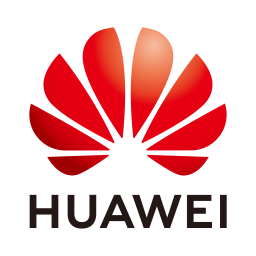[The below is an edited and translated version of an article which originally appeared here on Avanza.se]
(Finwire) 8 June 2019
The London-based technology company Flexion Mobile – which was listed on First North a year ago – recently attracted keen attention following its conclusion of a series of new agreements, combined with the opportunities presented as a result of the US compelling the technology giant Google to halt shipments to – and collaboration with – Huawei, the major Chinese mobile and technology company.
Flexion’s distribution platform for Android-based games helps game developers reach new channels without needing to make changes to their games – making it profitable for them to distribute games to multiple app stores.
“It’s quite difficult for developers to attain favourable distribution; however, our technical solution allows game developers to reach new target groups, thereby presenting potential revenue gains of 10 per cent or more,” explains Flexion’s CEO, Jens Lauritzson, in an interview with Finwire.
Revenue-share business model
The business model is a revenue-share through which the company signs agreements with developers covering games which can earn more than USD 1 million a month in Google Play.
Flexion’s current goal is to sign agreements with 100 games, for which the company takes a percentage of payments made in distributed free-to- play games. These games are free to download but allow users to progress through the game by purchasing additional functionality or items.”To date, we’ve signed agreements with 15 titles and we’re constantly looking for new high ranking titles,” says the CEO, adding: “Getting a game out takes about a month after agreement, but it takes about six months for the game to attain commercial success, since this requires some time to build a sufficiently large user base.”According to the company, generally only about five per cent of players pay in a free-to-play model.
Markets are developing differently, and display varying degrees of maturity. The propensity to pay is considerably higher among the more mature Asian platforms, where players are used to spending on mobile games. Generally, well-paid 30-40-year old Asian men in mature markets – such as Japan and South Korea – represent the best customers.
Sanctions: disadvantage for Huawei… disaster for Google?
Recently, the trade war between the US and China came into focus also in the case of app distribution platforms when the Chinese company Huawei – the second largest mobile-phone vendor – was blacklisted and is no longer assured of Google’s platforms and apps in its new phones.
The sanctions create openings further ahead, says Jens Lauritzson, who views it as a wake-up call for the market.
“For Huawei, this is not good at all, but neither is it reasonable to assume that Google Play will be the platform to serve all the world’s Android apps in the future. We see recent events as a starting shot for a new, more open Android with more stakeholders,” says Jens, and elaborates: “It’s also a disaster for Google, since it wants its own version of Android to be everywhere. Huawei sells about 60 million units a quarter and is thus a really perfect partner for Google. I suspect that this could be a negotiation tactic that Trump hatched, so we can well expect an agreement eventually.”
The open-source Android platform is currently the dominant platform for smartphones and tablets, and Google leads the project.
Flexion Mobile does not officially cooperate with Huawei but discussions are ongoing.
“We talk to everyone, of course, and it’s really just a question of when we start working with them,” concludes Jens.
Share price: positive progress
On the stock market, the company has progressed positively following a slow start. There was no subscription price in connection with the listing, since the company had not sought new funds. However, the Flexion Mobile attracted an investment of SEK 68 million in February 2018 at a price of SEK 8.30 per share.
On Friday last, the share closed at SEK 11.80, having traded in the range of SEK 5.20 to 17.80 during its first listing year.
